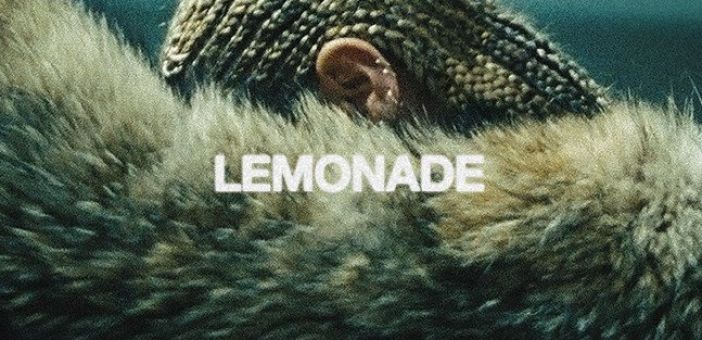
Beyoncé 'Lemonade' review
Oliver King delves deeper into Beyoncé's surprise audio-visual record 'Lemonade'.
Ben Smith
Date published: 4th May 2016
Image: Beyoncé
Not many pop stars have managed to reach the level of reverence and respect that Beyoncé has before the age of 35, but simply put, not many people are as good as Beyoncé.
Last week she released her second visual album, titled Lemonade and, much like when she surprisingly released her self-titled fifth album in 2013, it’s taken the world by storm (See the album trailer below).
B’s sixth LP has made waves due to its apparent confirmation of the perpetual rumours about her husband, rap mogul Jay-Z, being unfaithful, and she definitely doesn’t waste any time in letting us know how she feels about it.
The first line of opening song, the sombre 'Pray You Catch Me' hears the singer crying “you can taste the dishonesty, it’s all over your breath”. It sets the tone for the rest of the album, which documents Beyoncé’s coming to terms with and moving on from the betrayal.
As we move through the album - which comes in at a lean 45 minutes and twelve tracks - and its accompanying film, we’re quite literally taken through the emotions one would feel after finding out about a partner’s infidelity.
The second track, 'Hold Up', is a startling juxtaposition; frank lyrics question what forced her husband to stray against a chirpy, minimalist Diplo beat which isn’t too dissimilar from an early Vampire Weekend track.
The upbeat way that Beyoncé delivers her lines, in the song and its visual, have us thinking that she is seeking maniacal revenge: a woman scorned.
This quickly turns to incandescent rage in the following track, “Don’t Hurt Yourself”, which is an unexpected but surprisingly well-suited collaboration with Jack White. The sheer ferocity with which Beyoncé screams her lyrics is something to behold, and the track’s closing lyric lets Jay-Z know that if he tries “this shit” again, he’s going to “lose his wife”.
If there’s one thing we’re learning, it’s that Queen B doesn’t mince her words.
Other tracks such as 'Sandcastles' and 'All Night' continue the story, which has been described by parent streaming service Tidal as “every woman’s journey of self-knowledge and healing”.

The former has some of the most minimal production ever heard on a Beyoncé track, but boasts some of her most gut-wrenching vocals, while the latter is a tale of reconciliation and forgiveness, and with its Outkast-sampling horns section, is joyously uplifting and optimistic.
The album’s variety of genres it incorporates is something not seen often in a mainstream pop record. '6 Inch', a great collab with The Weeknd, is a full on trap song, but intertwined are ominous guitar riffs that seem to be influenced by spaghetti Western film themes.
The following track, 'Daddy Lessons', is a country affair that Dolly Parton wouldn’t sound out of place singing, but works brilliantly with B tapping into her southern roots.
Other great moments on the album come from 'Sorry' and 'Love Drought'; the former’s video segment features a brilliant cameo from a dancing, leotard-clad Serena Williams.
Simultaneously, the album is about Beyoncé and her culture. She has recently become more and more affiliated with the Black Lives Matter movement, and the effect of this is reflected in her subsequent musical output, most prominently in 'Freedom', which features a verse from the phenomenal Kendrick Lamar, and the closing track, 'Formation'.
It’s refreshing to see Beyoncé embrace her culture more than ever before on the closer, and you can tell that it’s given a new lease of life to her creativity.
The mothers of Trayvon Martin, Michael Brown and Eric Garner, all of whom died at the hands of police brutality in America, appear in the film holding pictures of their deceased sons, and it adds a much deeper level to what the themes of the album are.
The two storylines are interwoven expertly on the LP, which in its essence, tells the story of what it is like to be a heartbroken but still in love, black woman in America.
Many great artists manage to get one masterpiece in their careers, but Beyoncé has managed to get two in the space of three years. Lemonade, a quasi-sequel to her sensational self-titled opus in 2013, teaches us a lot of lessons about betrayal and forgiveness, and that, as Jay-Z’s grandmother is heard saying at the end of Freedom, when life serves you lemons, sometimes you have no other choice but to make lemonade.
Read our interview with Vanessa Carlton: 'Better late than never right?'
Read more news




















